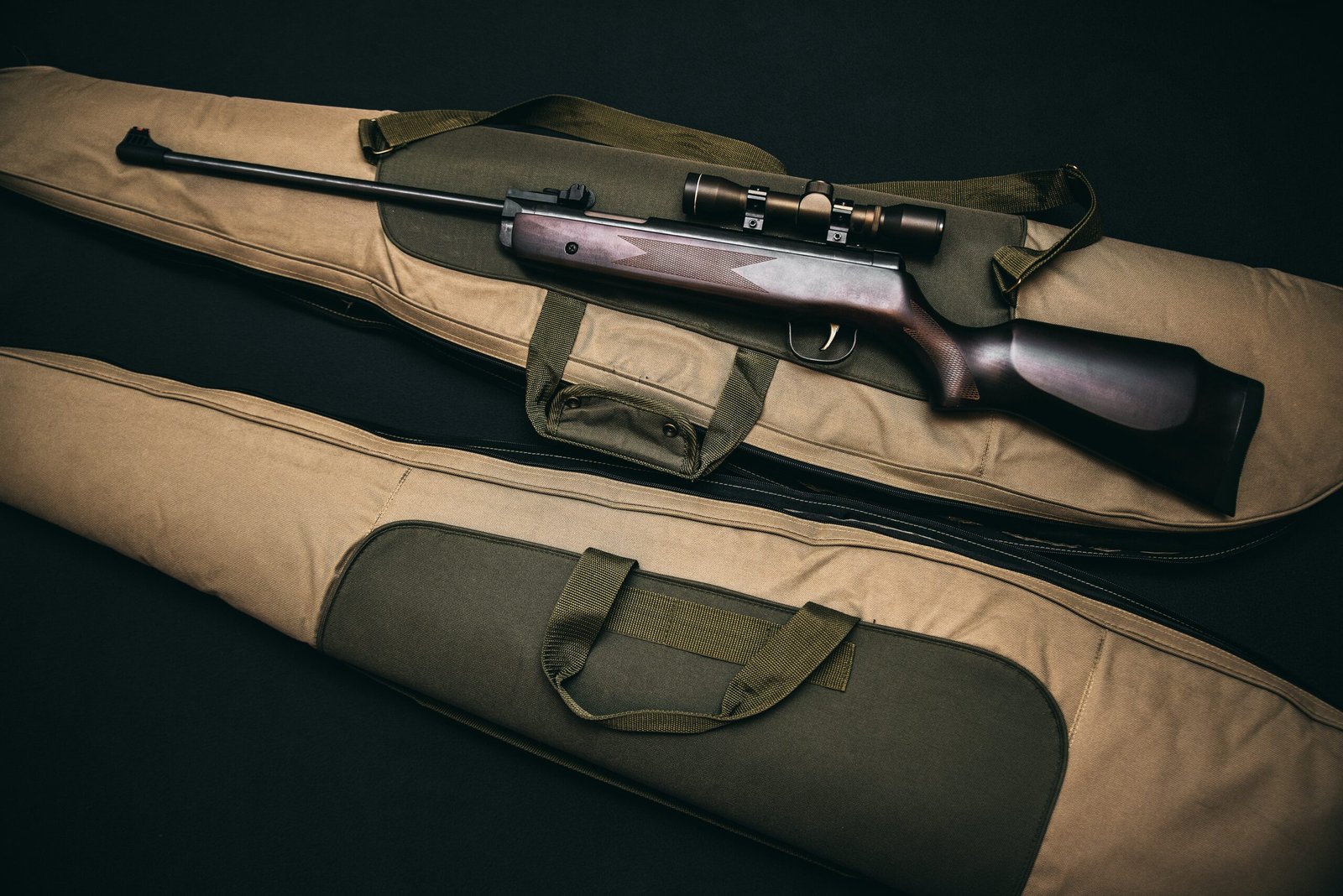How To Hunt Deer
Deer hunting is a popular outdoor activity that requires patience, skill and preparation. It is not only a thrilling sport but also a way to connect with nature and provide food for yourself and your family. Whether you are new to deer hunting or have been doing it for years, there is always something to learn.
In this guide, we will cover the basics of how to hunt deer, from choosing the right location and equipment to tracking, shooting and processing your kill. We will also provide tips and tricks to increase your chances of success and ensure a safe and ethical hunt. So, grab your gear and let’s get started on this exciting journey!
How To Hunt Deer
Here are the general topics that we will cover in this guide:
- Choosing the Right Location
- Essential Equipment for Deer Hunting
- Understanding Deer Behavior and Patterns
- Tracking Techniques and Tips
- Shooting and Processing Your Kill
- Safety Measures to Follow During a Hunt
Choosing the Right Location
When it comes to deer hunting, location is everything. Choosing the right spot can mean the difference between a successful hunt and going home empty-handed. Before heading out, do some research on local areas that are known for having a large deer population. You can also ask experienced hunters or join online forums to get recommendations.
Once you’ve chosen a location, scout the area beforehand to familiarize yourself with the terrain and identify potential spots for setting up your stand or blind. Look for signs of deer activity such as tracks, droppings, rubs, and scrapes. Additionally, consider factors like food sources, water availability and wind direction when selecting your hunting spot.
Remember that deer are creatures of habit, so if you find a good location one season, chances are it will be a good spot in the following seasons as well.
Essential Equipment for Deer Hunting
Having the right equipment is crucial for any successful hunt. Here are some essential items that every deer hunter should have:
- Weapon of choice: This can be a rifle, bow or crossbow depending on your skill level and personal preference. Whichever weapon you choose, make sure it is properly sighted and in good working condition.
- Clothing: Wear comfortable and weather-appropriate clothing that will keep you warm, dry and camouflaged. Don’t forget to wear blaze orange for safety.
- Tree stand or ground blind: These are essential for staying hidden from deer while hunting. Make sure to set them up in a safe and secure location.
- Hunting knife: A sharp and sturdy hunting knife is necessary for field dressing and processing your kill.
- Other gear: This includes binoculars, calls, scents, backpack, and first aid kit.
Remember to pack light as you’ll be carrying all this equipment with you during the hunt. Also, invest in high-quality gear that will last you for many seasons to come.
Understanding Deer Behavior and Patterns
To be a successful deer hunter, it’s important to understand the behavior and patterns of these animals. This knowledge can help you predict where and when they are most likely to appear.
Deer are most active at dawn and dusk, so plan your hunt accordingly. They also have a keen sense of smell and hearing, making it essential to play the wind and stay quiet while hunting. Additionally, deer tend to move in familiar paths or trails, especially near food sources and water. Understanding these patterns can help you set up in strategic locations for a better chance at a successful hunt.
Lastly, always keep in mind that deer are wild animals and their behavior can be unpredictable. Stay patient, observant and adaptable to increase your chances of success.
Tracking Techniques and Tips
Tracking a wounded deer can be a challenging task, especially for beginners. Here are some tips to help you track a deer successfully:
- Keep your eyes focused on the ground: Look for blood, tracks or broken twigs that may indicate a deer’s path.
- Use your ears: Listen for any sounds of movement that can lead you to your wounded animal.
- Mark your trail: Use markers like tissue paper or flags to mark the trail as you track, especially in dense vegetation.
- Stay calm and patient: Do not rush and make hasty decisions. Take your time and follow the trail carefully.
Remember to always follow safety precautions while tracking a wounded deer, and seek help from experienced hunters if needed.
Shooting and Processing Your Kill
Once you’ve successfully taken down a deer, it’s important to process it properly to ensure high-quality meat for consumption. Here are the basic steps to follow:
- Field dress the deer: This involves removing the internal organs to prevent spoilage and contamination.
- Transport the carcass: Use a sled, cart or ATV to transport the deer back to your vehicle or campsite.
- Skin and quarter the deer: Remove the skin and separate the meat into manageable pieces for processing.
- Process the meat: This can include cutting steaks, grinding meat, and packaging for storage.
Remember to keep the meat clean and cold during processing to prevent spoilage. Also, check local regulations and guidelines for proper disposal of carcass remnants.
Safety Measures to Follow During a Hunt
Hunting can be an exciting and rewarding experience, but it’s important to prioritize safety at all times. Here are some essential safety measures to follow during a deer hunt:
- Wear proper gear: This includes blaze orange, hunter’s orange or other bright colors to ensure visibility to other hunters.
- Practice firearm safety: Always keep your weapon pointed in a safe direction and treat it as if it is loaded.
- Communicate with others: Let someone know where you’ll be hunting and when you plan to return. Consider carrying a whistle or other signaling device in case of emergency.
- Be aware of your surroundings: Always know what is beyond your target before taking a shot. Be cautious of other hunters, hikers, or vehicles in the area.
Remember to also follow all local hunting regulations and laws, and prioritize your own personal safety above all else.
How much time does it take to become a successful deer hunter?
Becoming a successful deer hunter takes time, patience, and dedication. It’s important to continuously learn and improve your skills as you gain more experience in the field. Some hunters may have beginner’s luck, while others may take several seasons before harvesting their first deer. Ultimately, success is subjective and can vary greatly based on individual goals and expectations.
Some hunters may measure success by the number of deer harvested, while others may value the overall experience and connection with nature. As you gain more knowledge and experience, your chances of a successful hunt will increase, but it’s important to remember that every hunting trip is a learning opportunity. So don’t get discouraged if you don’t achieve your desired outcome right away.
Misakes to Avoid
Here are some common mistakes that beginner deer hunters may make, and how to avoid them:
- Lack of preparation: Not properly scouting the hunting area, not familiarizing oneself with local regulations, or not practicing shooting skills can all lead to a less successful hunt.
- Not understanding deer behavior: As mentioned earlier, understanding deer behavior and patterns is crucial for a successful hunt. Not taking the time to learn about these animals can result in missed opportunities.
- Not prioritizing safety: Accidents can happen quickly while hunting, and not following safety measures can lead to serious injury or even death. Always prioritize safety above all else.
- Giving up too soon: Hunting requires patience and perseverance. It’s important to remember that success may not come on the first try, so don’t give up too soon.
By avoiding these mistakes and continuously learning and improving, you can increase your chances of a successful and enjoyable deer hunting experience.
Goverment Regulations and Guidelines
Before heading out on a deer hunt, it’s important to familiarize yourself with local government regulations and guidelines. These may vary by state or province, so be sure to do your research beforehand. Some common regulations include:
- Hunting season dates: Deer hunting seasons typically have set start and end dates, and sometimes specific limits for certain types of deer.
- Required licenses and tags: Hunters may need to obtain a hunting license and specific tags for deer, which can vary in cost depending on location and type of deer.
- Restrictions on weapons and ammunition: Different areas may have restrictions on what types of weapons or ammunition can be used for deer hunting. Make sure you are aware of these before heading out.
It’s important to follow these regulations and guidelines not only for ethical reasons, but also to avoid any potential legal consequences. Always check the most current regulations before planning your hunt.
FAQs
Can I hunt deer on public land?
Most states and provinces have designated areas for public hunting, but it’s important to check local regulations before heading out. Some areas may require a specific permit or may have restrictions on certain types of hunting equipment.
How do I find the best spot to hunt?
Scouting is crucial for finding the best spot to hunt deer. Look for signs of deer activity, such as tracks or rubs on trees. Additionally, consider talking to local hunters or joining a hunting club for more insider knowledge.
What should I do if I accidentally shoot the wrong animal?
In the unfortunate event that you mistakenly shoot the wrong animal, it’s important to immediately report it to local authorities and follow any necessary steps for proper disposal of the animal. It’s also important to be honest and take responsibility for your actions.
Conclusion
Deer hunting can be a challenging and rewarding experience, but it’s important to prioritize safety and follow all regulations and guidelines. By properly preparing, understanding deer behavior, and continuously learning and improving, you can increase your chances of a successful hunt. Remember to always respect the animals and their habitats, and enjoy the beauty of nature while out in the field.
Also, be sure to pass on your knowledge and passion for hunting to future generations, so that this tradition can continue for years to come. Happy hunting!




What do you think?
It is nice to know your opinion. Leave a comment.